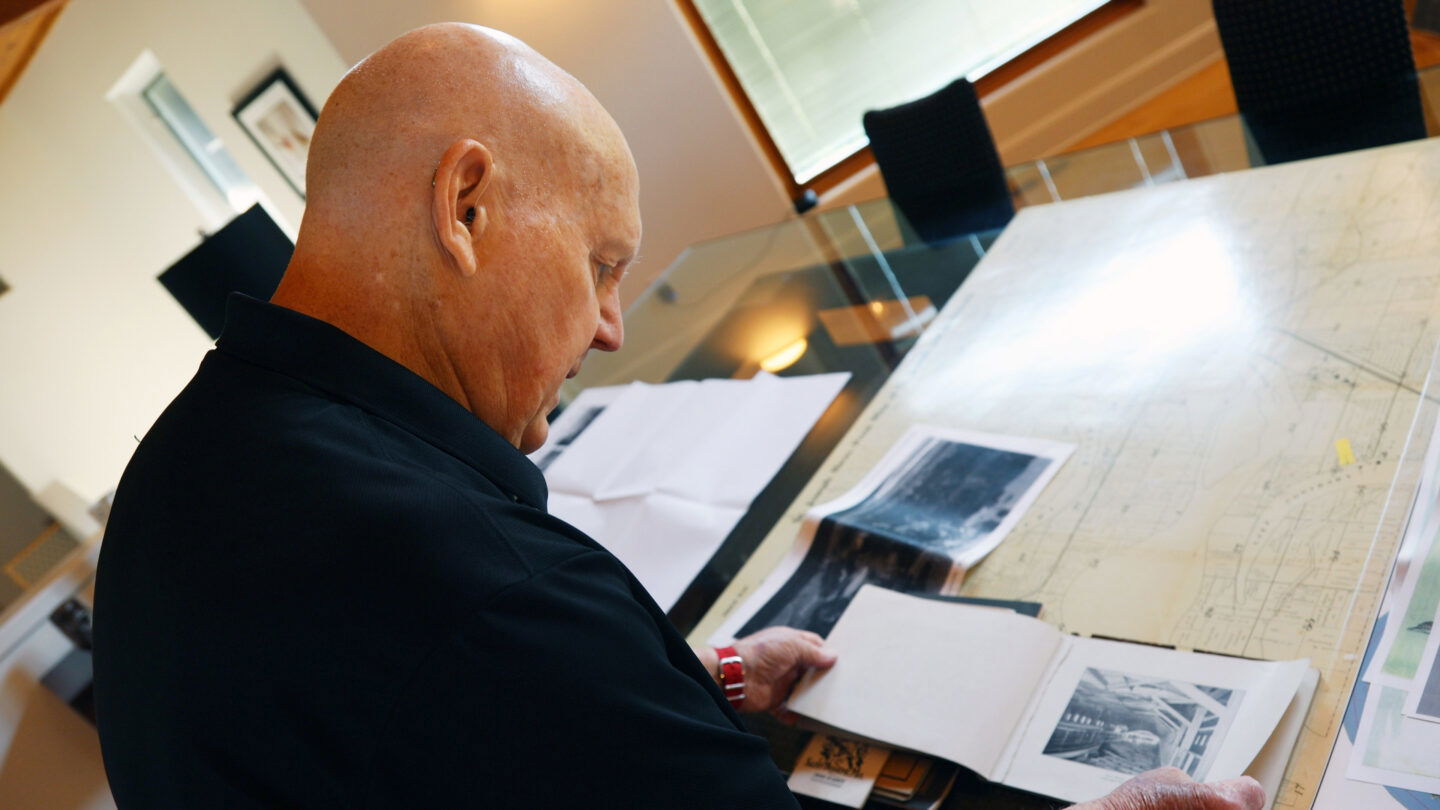Ownership question looms as Lake Contrary vision takes shape

By Cameron Montemayor
The question surrounding Lake Contrary’s ownership can at times be traced back to the earliest years of the state of Missouri, with authority over the lake bed being impacted by court rulings, legal opinions and other acts in the time since.
Despite that, gray areas still exist. Now, county officials are working to address questions of ownership on multiple fronts before they can consider moving forward with dredging the lake and returning it to a recreational destination.
For a brief period, Lake Contrary was owned by the city of St. Joseph after it was awarded the lake by Missouri Congressman R.P.C. Wilson’s Act of Congress in 1890.
A fateful decision not long after to cut a canal between the upper and lower lake spurred numerous lawsuits from concerned farmers who feared that valuable farmland would be destroyed in the process. Courts agreed and St. Joseph’s short-lived ownership was nullified.
“An attempt by the United States government in 1890 to deed the lake to the city of St. Joe was not effective because the United States government did not have title in 1890. It had awarded the title to the state of Missouri in 1836,” said Jim Bowers, a longtime lawyer, Lake Contrary property owner and former president of the Save the Lake committee.
Bowers has done extensive research on property ownership and the legal history surrounding the oxbow lake, particularly as the subject of dredging gains considerable steam.
The aforementioned case was one of the first to affirm the lake was state property, albeit with caveats.
Question of ownership
After swift lawsuits by farmers in the 1890s, courts confirmed that the state of Missouri already had received the land that now is Buchanan County, Atchison County and several other counties comprising the western tip of the state during the Platte Purchase of 1836. Therefore the lake was considered a navigable body of water owned by the state.
The question would come up again. In 1983, former Attorney General John Ashcroft confirmed that fact in an opinion to determine if the Missouri State Water Patrol had jurisdiction to regulate boating activities on Lake Contrary and several other oxbow lakes like Bean and Sugar lakes.
“Bean, Contrary, Sugar and Big lakes are waters of this state within the definition of Section 306.010(7),” Ashcroft wrote.
A year after Ashcroft’s opinion, Buchanan County issued a court order establishing its purview over the lake. The order was issued to give the county the ability to regulate the usage of duck blinds, a type of protective cover used by hunters for duck hunting.
“The order says ‘Lake Contrary and Buchanan County, Missouri, is the property of the state of Missouri under the control and custody of the county of Buchanan,’” Bowers said reading the court order. “It is a responsibility of Buchanan County Court to administer and maintain the property of Buchanan County and preserve said property for the enjoyment and recreation of the citizens.”
But officials know one order from a previous group of county leaders does not automatically grant them full authority over the lake, and work is being done to determine the extent to which they do according to it and other evidence.
The question of ownership did not prevent the lake from being partially dredged on the east shoreline by the county in 1956, as well as in 2007 when the Corps of Engineers supported a plan that included dredging and providing new fish species, one that never came to fruition.
The Missouri Department of Natural Resources confirmed to News-Press NOW that the lake bed is state property, but only as long as no private landowners or other governmental entities were granted title to the lake bed by the State of Missouri any time after 1836.
“The attorney general just earlier this year confirmed that the state of Missouri owned the property. But they raised the question of whether or not anybody had claimed ownership to the middle of the lake,” Bowers said.
In addition to preliminary research, the county is now preparing to initiate a title search to address that key question.
Lake Contrary
ties run deep
Bowers’ home resides on the land that was once Lake Contrary Park’s Lotus Club, a famous hotel and dance hall that operated for four decades before it was destroyed by a fire in 1924.
Bowers is the great-nephew of Anne (Bowers) Ingersoll, wife of amusement park pioneer Bob Ingersoll. The Ingersolls helped construct the amusement park and later owned and managed it for more than 50 years. Bowers’ home sits within a 10-acre subdivision that he owns near the entrance of Lake Contrary.
He has fond memories of growing up on the lake, from the days as an 8-year-old boy fishing and swimming to water skiing in high school.
“The lake was probably the focal point of our livelihood. My mom and dad worked at the amusement park, and I worked at the amusement park during the summer,” he said.
Like other property owners on the lake, revitalization would not only return a recreational destination they once enjoyed but notably boost property values.
As president of the Save the Lake committee, Bowers spearheaded the last serious dredging proposal in 2007, a revitalization plan that included adding new fish and bird species. The project had the support from the Corps of Engineers and appeared to be on the verge of starting but ultimately had to be abandoned.
“Funds that were scheduled to be appropriated by the Corps of Engineers to help with dredging the lake, were diverted to other projects that have a higher national priority like Hurricane Katrina. The timing was horrible,” he said.
When the recent question of whether private ownership of the lakebed had been claimed, as he has countless times when practicing law, he started digging. Bowers has been actively reaching out to various property owners in different quadrants of the lake to see if deeds and abstracts show ownership extending to the lake bed.
“I traced that back to the 1803 Louisiana Purchase … What’s interesting is when land adjacent to the lake was transferred from private owner to private owner in the early 1840s, 1850s, 1860s, the boundary that all of those deeds identify is the shoreline of Lake Contrary.”
He said reviews of the deeds of two current property owners show the same boundary extending to the shoreline only and not the lake bed, including his land. He found one instance in the 1930s of a claim made by the former St. Joseph Light and Power Company to the lake, but the company is said to have donated the property to the county in 1964.
In Bowers’ opinion, the information affirms the county has the authority to do what it has done before, albeit in a limited area.
“The county has in the past dredged the lake,” he said. “To me, there’s no question that the state of Missouri owns the lake, that the county has the authority to dredge the lake.”
Buchanan County is in the research stages of deciding if dredging Lake Contrary is possible, including potentially buying a dredge and hiring operators to run it. It’s a plan with many moving parts still to address.
“There was a suggestion by the attorney general recently that additional permission be asked by the county of the Department of Conservation as well,” Bowers said. “I suspect the county may be doing that.”
The county is currently awaiting the test results of soil samples, which have been sent to determine if dredged material would cause any environmental harm if dumped.
If the dredging project were to proceed, the 300-acre lake would likely be dredged in three sections over three seasons. No official price has been reported, but the county is working on cost assessments of a potential project.


